News / Letter | Cannabinoid Reporting by Independent Testing Laboratories | March 8, 2024
Letter | Cannabinoid Reporting by Independent Testing Laboratories | March 8, 2024
Sent by electronic mail
March 8, 2024
Re: Cannabinoid Reporting by Independent Testing Laboratories
Dear Licensee(s):
The Cannabis Control Commission (“Commission”, “agency”) requires Independent Testing Laboratories (ITLs) to test Marijuana and Marijuana Products, including characterization of cannabinoid profiles, in a form and manner determined by the Commission and in compliance with its laws and regulations. See M.G.L. c. 94G § 15; see also 935 CMR 500.160(1), (2) and 501.160(1), (2). No Marijuana or Marijuana Product can be sold without first being tested by an ITL and deemed compliant with the agency’s testing standards and the Commission may require additional testing, at its discretion, to safeguard public health and safety. See 935 CMR 500.160(3), (11) and 501.160(3), (11).
On November 27, 2023, the Commission issued a bulletin to standardize and provide further guidance regarding Cannabinoid Reporting by Independent Testing Laboratories (the “Bulletin”) for product categories intended to be consumed through combustion (e.g., finished plant material such as flower/bud/trim/shake, raw/infused pre-rolls, concentrates, and extracts). This letter responds to inquiries received by the Commission and provides clarification regarding the agency’s timelines for implementation concerning three separate topics presented within the Bulletin.
i. Reporting of Cannabinoid Profile
The Bulletin contained a recommendation to present results of cannabinoid analysis “as received” without applying a “dry-weight basis” or “moisture correction.” To more accurately reflect the cannabinoid content consumed by the Patient or Consumer, the most recent United States Pharmacopeia (“USP”) considerations recommend that Marijuana flower testing be performed “as received” from the Licensee and in the same form available to Patients and Consumers.
Per M.G.L. c. 94G, § 15, Commission regulations must be based on the most recent standards as issued by the USP Convention and shall address sampling and analysis to characterize the cannabinoid profile. To address concerns of potency inflation, and safeguard the public health and safety, the Commission is adapting to USP best practice recommendations and is now requiring ITLs to analyze and report cannabinoids “as received.” This is intended to serve as an update to Section 4.2.2 of the Commission’s Protocol for the Sampling and Analysis of Finished Marijuana Products and Marijuana Products for Marijuana Establishments, Medical Marijuana Treatment Centers, and Colocated Marijuana Operations—which required calculation of THCA, Δ9-THC, CBDA, and CBD by dry weight. This update will ensure consistent reporting and that members of the public know the potency of the Marijuana they are consuming.
ITLs must implement the above changes to their cannabinoid profile reporting within 30 business days from the issuance date of this letter.
ii. Calculation of Total THC and Total CBD
For all product categories intended to be consumed through combustion, as identified above, ITLs must report “Total THC” and “Total CBD” in all Certificates of Analysis (COA) and upload results to the agency’s seed-to-sale system of record (Metrc) by applying the following calculations:
- Total THC must be calculated incorporating only Tetrahydrocannabinolic acid “THCA” (CAS# 23978-85-0) and Delta 9-Tetrahydrocannabinol “Δ9-THC” (CAS# 1972-08-3) and applying the following calculation:
Total THC = Δ9-THC + (THCA x 0.877)
- Total CBD must be calculated incorporating only Cannabidiolic acid “CBDA” (CAS# 1244-58-2) and Cannabidiol “CBD” (CAS# 13956-29-1) and applying the following calculation:
Total CBD = CBD + (CBDA x 0.877)
Please note that the above calculations for potency (i.e., Total THC and Total CBD) must be applied as written and should only be applied using the cannabinoids identified above. Licensees may report other cannabinoids in the cannabinoid profile at their discretion pursuant to applicable Commission regulations.
ITLs must implement the above changes to their Total THC and Total CBD calculations and cannabinoid reporting within 30 business days from the issuance date of this letter.
iii. Measurement of Water Activity
The Bulletin presents information related to water activity testing that was intended for reference purposes only. Testing for water activity is an additional safety and quality measurement used to determine how susceptible products are to microbial contamination. As identified in the bulletin, USP general chapter <1112> Application of Water Activity Determination to Nonsterile Pharmaceutical Products provides information regarding control of water activity and USP general chapter <922> Water Activity outlines recommended methods to apply to raw materials and products. The Commission recognizes ITLs will require time and guidance to accredit a new testing method to ISO/IEC 17025:2017. Accordingly, ITLs are not required to implement new testing methods for the testing of water activity at this time.
If you have any questions regarding this letter, please reach out to your assigned Laboratory and Testing Analyst.
Sincerely,
Debra Hilton-Creek
Acting Executive Director and Chief People Officer
Get Notified
Subscribe for updates from the Cannabis Control Commission.



